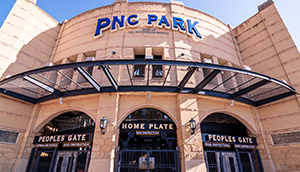This is Part 1 of a two-part article on acquiring your first bond.
Be sure to read Part 2 of Mueller’s advice for acquiring your first bond.
 Are you ready for your first surety bond?
Are you ready for your first surety bond?
Maybe you’re bidding on your first public project, or the financiers of a private job require a bond. You may have previously qualified for a Fast Bond program, which is available for small projects, but now you’ve graduated to standard contract bonds.
You’re probably a bit anxious about going through a full underwriting process. But with a little knowledge and some preparation, being examined by a surety company can be a positive experience that puts your construction business firmly on the path to growth.
Start by getting yourself a professional surety agent. Talk to the property-casualty agent who insures your business. They may be very knowledgeable about the surety world. Or perhaps the agency they work for has agents who specialize in bonds. If not, ask for a referral.
Other good referral sources include your banker, your CPA (if you have one) or fellow contractors who do bonded work. Another great place to find a surety agent is the National Association of Surety Bond Producers (NASBP), which maintains a surety agent locator. Agents who are members of NASBP are leaders in the surety industry and will certainly be able to help you.
Why a surety agent is important
The more experienced the surety agent, the easier it’ll be for you to get a bond. Here are four reasons why you should work with an agent who specializes in surety:
- They know what surety companies want from contractors. They can help you prepare a successful and timely submission.
- They have access to multiple surety markets and know which ones are most likely to be the best fit.
- They've developed relationships with surety underwriters, which can facilitate your bond approval.
- They know how to analyze financial statements and can point out your company's financial strengths and weaknesses.
Pulling together your financial information
You can get a head start on the bonding process by gathering your company’s pertinent financial information. A knowledgeable construction CPA can produce the proper statements you’ll need.
Here are the items you’ll be asked to provide the surety:
- CPA-prepared fiscal year-end financial statements for the last three years. If the bond you need is small enough, internally prepared year-end statements may suffice if you don’t yet have a CPA. However, you should be prepared to engage a CPA for your next fiscal year-end statement and all those thereafter. Each statement should include a work-in-process schedule (WIP).
- Your most recent internally prepared financial statement with WIP and aging of accounts receivable.
- The most recent personal financial statements for the owners of the company.
- A copy of your bank line of credit agreement.
- A completed contractor questionnaire. This form provides the surety underwriter with valuable background information about your company. Your agent will likely have one available for you to fill out.
If you have any questions about anything regarding surety, contact an appointed agent, or reach out to an Old Republic Surety branch nearest you.
Topics

Erik is the bond manager of the Minneapolis, Minnesota, contract branch office (located in Hudson, Wisconsin). He has been in the surety industry since 2007. Before joining Old Republic Surety Company, he was a surety risk advisor at Bearence Management Group and an account executive at Travelers. He has a bachelor's degree in history and social studies from Minnesota State University.


